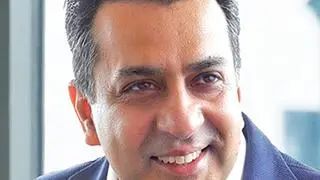State-run BSNL may soon launch 4G LTE services, among the most advanced network in terms of speed.
The telco at present doesn’t have any LTE-based 4G service, and the bandwidth that it has is used mostly for 2G and 3G. For instance, 2G services are provided on 900 MHz and 1,800 MHz bandwidths, while 3G is provided on 2,100 MHz.
“We are exploring 4G services through the LTE route,” Anupam Shrivastava, Chairman and Managing Director, BSNL, told BusinessLine. He, however, did not mention a timeframe for its launch.
According to Shrivastava, BSNL may look at matching the highest bidder to purchase additional 4G airwaves. It doesn’t have the required spectrum to roll out 4G services.
“We do not have the appropriate spectrum at present. Historically, we do not participate in auctions. But what we can do is match the bids of the highest bidder,” he said.
VoLTE servicesReliance Jio is the only operator that has introduced voice over LTE (VoLTE) services in the country.
Incidentally, BSNL’s decision to start LTE-based 4G services comes at a time when private operators like Bharti Airtel, Idea and Vodafone have either announced their foray into the VoLTE segment or are known to have begun tests for such services.
In fact, if market sources are to be believed, BSNL ideally needs LTE service on 4G technology to provide VoLTE services. However, there is a possible workaround. What the telco can do is provide voice services over data packs or voice over internet protocols at speeds matching 4G networks.
Sources say Bharti Airtel , the country’s largest telco, still offers voice calling over the circuit switch technology, and will soon move to VoLTE technology.
Similarly, Idea Cellular will launch VoLTE soon while Vodafone India is said to be testing it in select areas.
Wi-fi strategyBSNL’s current strategy includes using the existing LTE and optical fibre network to install new wi-fi hotspots across the country.“We have initiated our 4G strategy through wi-fi hotspots or virtual 4G hotspots,” Shirvastava explained.
This means the telco’s Wi-Fi hotspots are integrated to its mobile network. So if a 2G or 3G network user takes his/her device/network to its wi-fi hotspot, the data session will be seamlessly transferred to 4G type high speeds.
At present there are 10,400 such wi-fi hotspots; BSNL will, over two years, take this number up to 100,000.








Comments
Comments have to be in English, and in full sentences. They cannot be abusive or personal. Please abide by our community guidelines for posting your comments.
We have migrated to a new commenting platform. If you are already a registered user of TheHindu Businessline and logged in, you may continue to engage with our articles. If you do not have an account please register and login to post comments. Users can access their older comments by logging into their accounts on Vuukle.